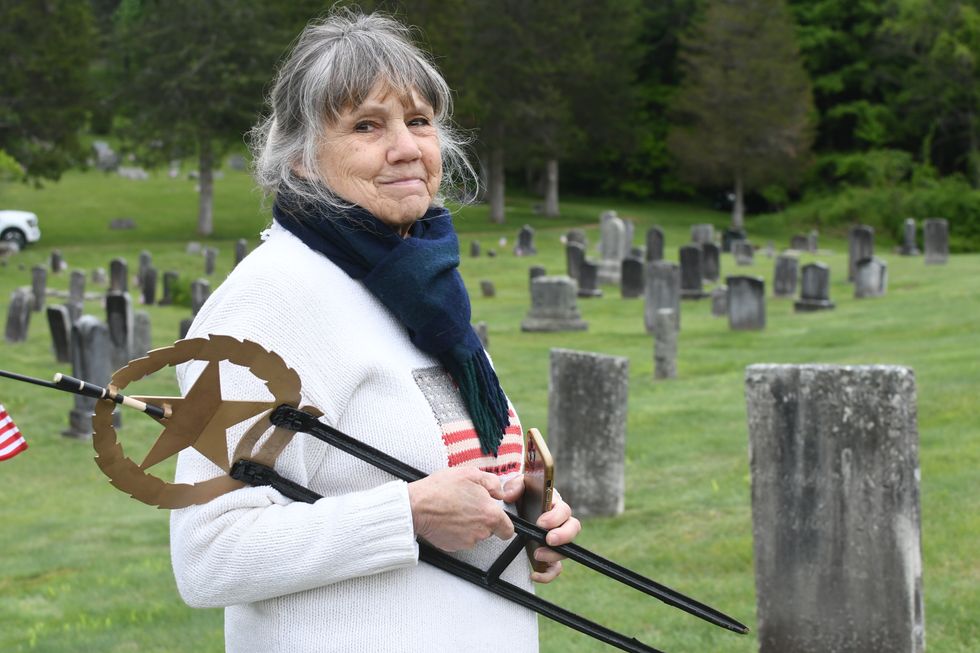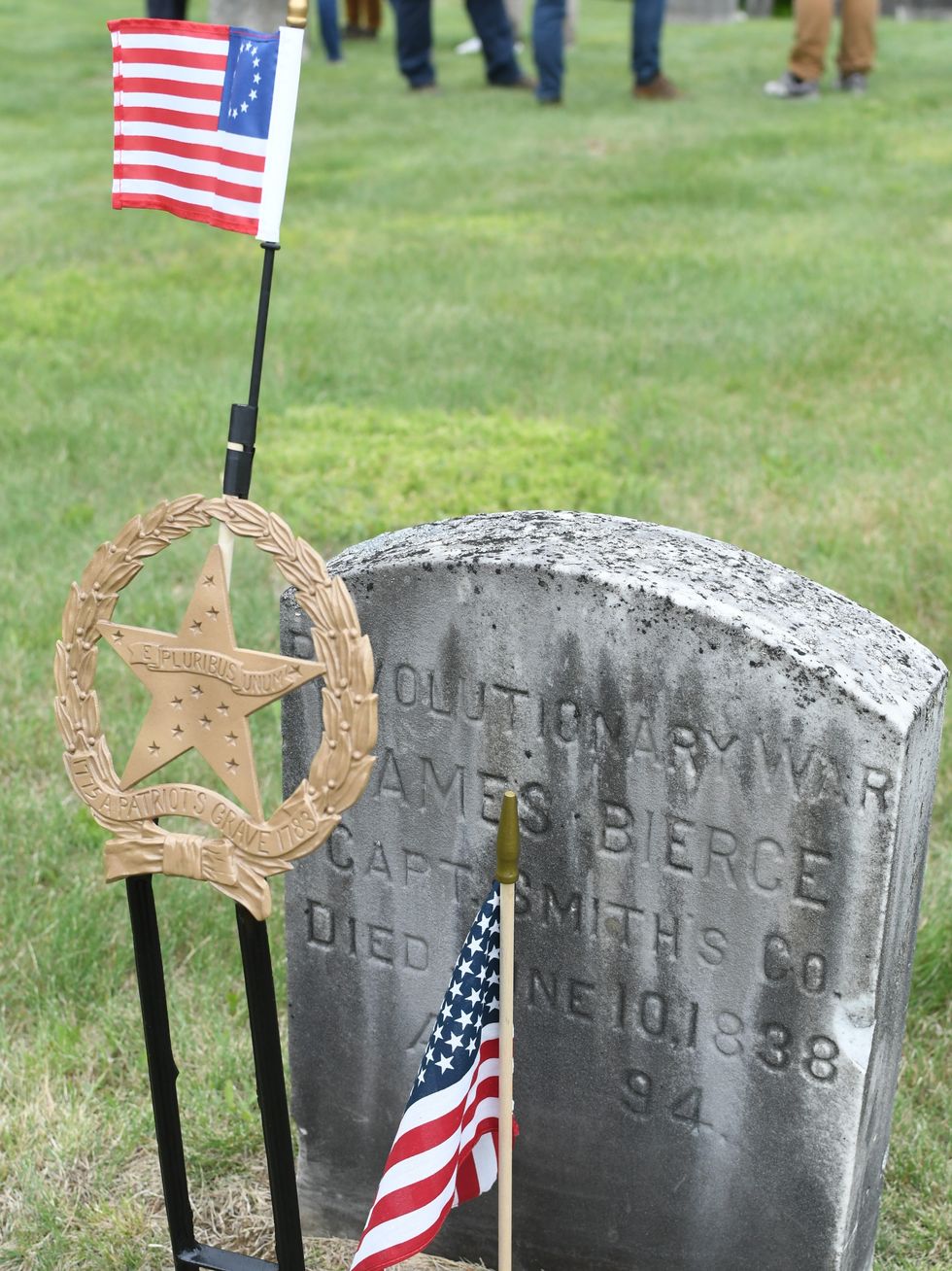Latest News
Classifieds - May 29, 2025
May 28, 2025
Help Wanted
A Plus Detailing Hiring: Open position for a Full Detailer & Cleaner. Depending on experience $21 to $30 per hour. Contact Ryan at 959-228-1010.
Driver: For The Lakeville Journal and Millerton News newspaper routes, part time Wednesdays, Thursdays and some Fridays. Call James Clark. 860-435-9873, x 401 or email publisher@lakevillejournal.com.
Town of Amenia Highway Department HIGHWAY WORKER:Truck Driver, laborer, Full time, Health Insurance, NYS Retirement, paid holidays, vacation, Personal leave, comp time, longevity pay etc; CDL LICENSE REQUIRED $26- $28 an hour depending on experience. Pick up applications at Amenia Highway, 8 Borden Lane, Wassaic, NY Or call 845-373-9922.
Isabella Freedman Jewish Retreat Center: is a year-round 120-person retreat facility that is located in Falls Village, CT. Want to work at a beautiful, peaceful location, with great people? This is the place to be! We are currently seeking positions for a Maintenance Associate (full time, temporary), Retreat Services Associate (front of house), and Mashgichim (F/T and P/T) for our summer season. For more details please visit our website at adamah.org/about-adamah/careers/ or email a copy of your resume to rebecca.eisen@adamah.org.
Music Director: Sharon Congregational Church in Connecticut seeks a Music Director to plan, coordinate and develop the music ministry. Responsibilities include weekly worship and holiday services. Weddings and funerals will be at his/her discretion. Director will lead a small group of volunteer musicians instrumentally and vocally in traditional and contemporary Christian music. The Director must be an active Christian and proficient with piano or guitar. Position requires three hours on Sunday and two to four hours prep weekly. Salary range is $9,000 to $10,500 commensurate with experience. Three weeks of vacation. Contact email: PastorDawson06@yahoo.com.
Help wanted: Small Angus Farm seeks reliable help for cattle and horses. Duties include feeding, fence repair, machine repair. Will train the right person. 860-671-0499 or 860-671-7024.
Experienced Horse Equestrian: to train three-year-old white Persian Mare for trail riding. 860-671-0499 or 860-671-7024.
Services Offered
Carpenter, Builder: David James Valyou 25 years serving NY CT MA older homes and barns my specialty. Repairs, Renovations Based in Canaan CT. Contact: 917-538-1617 davidvalyou@yahoo.com.
Hector Pacay Service: House Remodeling, Landscaping, Lawn mowing, Garden mulch, Painting, Gutters, Pruning, Stump Grinding, Chipping, Tree work, Brush removal, Fence, Patio, Carpenter/decks, Masonry. Spring and Fall Cleanup. Commercial & Residential. Fully insured. 845-636-3212.
NEED YOUR HOME CLEANED?: Diana and Juliet have been servicing the Northwest Corner since 1998. We offer guaranteed satisfaction and have great references. Please call 860- 605-0528.
Farm Products
Hay For Sale: Round Bales. First Cutting covered hay, round bales. First cut hay covered with plastic. $10.00 for bale loaded. 860-671-0499 or 860-671-7024.
Real Estate
PUBLISHER’S NOTICE: Equal Housing Opportunity. All real estate advertised in this newspaper is subject to the Federal Fair Housing Act of 1966 revised March 12, 1989 which makes it illegal to advertise any preference, limitation, or discrimination based on race, color religion, sex, handicap or familial status or national origin or intention to make any such preference, limitation or discrimination. All residential property advertised in the State of Connecticut General Statutes 46a-64c which prohibit the making, printing or publishing or causing to be made, printed or published any notice, statement or advertisement with respect to the sale or rental of a dwelling that indicates any preference, limitation or discrimination based on race, creed, color, national origin, ancestry, sex, marital status, age, lawful source of income, familial status, physical or mental disability or an intention to make any such preference, limitation or discrimination.
Apartments For Rent
SALISBURY spacious 2 bedroom apt.: in historic house. Private garden entrance in quiet location overlooking town. Ideal for a single person or a couple without children. $1200 per month. 860-435-1007 or richardjboyle9@gmail.com No pets.
Houses For Rent
3b/3b home in Sharon:fully furnished, lake access, 3.84 acres. $5000 per month. 860-309-4482.
Sharon Rentals: 1b/1b home on a private lake. Avail 4/1/25. Yearly. $2750/Furnished, weekly housekeeping, garbage, water, ground maint. included. utilities addtl. 860-309-4482.
Tag Sales
North Canaan, CT
Town wide tag sale: Sat June 14th & Sun June 15th in North Canaan, CT. Spots available at Lawrence Field. To register your spot at home or at the field for $10/weekend go to www.NorthCanaanEventsCommittee.org for more information.
Keep ReadingShow less
Legal Notices - May 29, 2025
May 28, 2025
BAUER FUND AND FOUNDATION COLLEGE SCHOLARSHIPS
Through grants to colleges, The Bauer Foundation provides indirect scholarship assistance for undergraduate college education to students residing in The Connecticut Regional School District One based on merit and need.
The Bauer Fund operates in the same manner. However, grants from the Fund are limited to students attending either Cornell or Wellesley.
Students attending Cornell or Wellesley should apply to the Fund. All others should apply to the Foundation.
New and returning application forms for the 2025-2026 school year are available at: www.bauerfundfoundation.org.
Completed and fully documented applications must be returned to The Bauer Foundation at PO Box 1784 Lakeville CT 06039-postmarked no later than June 20 2025. Scholarship awards will be announced by August 20 2025.
05-08-25
05-15-25
05-22-25
05-29-25
Legal Notice
The Planning & Zoning Commission of the Town of Salisbury will hold a Public Hearing on Special Permit Application #2025-0284 by George Johannesen of Allied Engineering for a Structure Less than 50’ from a Waterbody and Site Development Activities Including Hardscaping, Landscaping, Stormwater Improvements in the Lake Protection Overlay District at 67 Old CNE Road, Lakeville, Map 40, Lot 30 per Sections 305.2 and 404 of the Salisbury Zoning Regulations. The hearing will be held on Monday, June 2, 2025 at 6:45 PM. There is no physical location for this meeting. This meeting will be held virtually via Zoom where interested persons can listen to & speak on the matter. The application, agenda and meeting instructions will be listed at www.salisburyct.us/agendas/. Written comments may be submitted to the Land Use Office, Salisbury Town Hall, 27 Main Street, P.O. Box 548, Salisbury, CT or via email to landuse@salisburyct.us. Paper copies may be reviewed Monday through Thursday between the hours of 8:00 AM and 3:30 PM.
Salisbury Planning & Zoning Commission
Martin Whalen, Secretary
05-22-25
05-29-25
Notice of Decision
Town of Salisbury
Planning & Zoning Commission
Notice is hereby given that the following actions were taken by the Planning & Zoning Commission of the Town of Salisbury, Connecticut on May 19, 2025:
Approved, subject to Torrington Area Health District Approval - Minor modifications to site development plans associated with Site Plan #2023-0220 by owner Indian Mountain School to renovate interior of assembly area and construct two small additions, approved July 17, 2023. The minor modifications include changes to the floor plan of the dining hall and surrounding areas. The property is shown on Salisbury Assessor’s Map 01 as Lot 20 and is located at 211 Indian Mountain Road, Lakeville.
Approved - Special Permit Application #2025-0281 by Jack Baer of UCE Fine Builders, for vertical expansion of nonconforming residential structure in accordance with section 503.2 of the regulations. The property is shown on Salisbury Assessor’s Map 39 as Lot 17 and is located at 104 Interlaken Road, Lakeville. The owners of the property are Robert and Robin Easton.
Approved, subject to Torrington Area Health District Approval - Site Plan Application #2025-0288 by owner Indian Mountain School for conversion of faculty housing to dormitory in accordance with section 803.5 of the regulations. The property is shown on Salisbury Assessor’s Map 01 as Lot 20 and is located at 211 Indian Mountain Road, Lakeville.
Any aggrieved person may appeal these decisions to the Connecticut Superior Court in accordance with the provisions of Connecticut General Statutes §8-8.
Town of Salisbury
Planning &
Zoning Commission
Martin Whalen, Secretary
05-29-25
NOTICE TO CREDITORS
ESTATE OF
EDWARD R. GEORGE
Late of Norfolk
(25-00020)
The Hon. Jordan M. Richards, Judge of the Court of Probate, District of Litchfield Hills Probate Court, by decree dated May 6, 2025, ordered that all claims must be presented to the fiduciary at the address below. Failure to promptly present any such claim may result in the loss of rights to recover on such claim.
The fiduciary is:
Mary George
c/o Matthew J Lefevre
Law Offices of Matthew Lefevre, ESQ PC, 38 Woodland Street, Hartford, CT 06105
Beth L. McGuire
Chief Clerk
05-29-25
Keep ReadingShow less
Bill Dinneen, left, and Ivan Kotchoubey, age 7, place a recently restored grave marker at the headstone of David Mallery, a Revolutionary War veteran, in Cornwall Sunday, May 25.
Photo by Riley Klein
CORNWALL — On Sunday, May 25, Cornwall held a powerful ceremony to honor local veterans of the Revolutionary War.
At the cemetery on Route 4, about 25 attendees gathered to witness the placement of 10 grave markers. Bill Dinneen of the Cornwall Historical Society and Warren Stevens led the ceremony.
“These markers had gone missing from the cemetery, we don’t know when,” Dinneen said, showing six bronze and four cast iron markers that were recently restored and painted.
He explained the markers were found in bushes at the edge of the cemetery by Gene Swanson, of Washington Depot. It was unclear why they were removed from the gravestones, and Dinneen said there could be more elsewhere in the cemetery.

“Today we have 10 markers. We have 32 names” of buried Revolutionary War veterans, Dinneen said. “The bronze markers will go to ranked soldiers,” such as sergeants, and “the cast ones will go to the oldest” of the infantry soldiers.
The restoration process included sandblasting, priming and painting. He was not certain, but Dinneen said the markers may have been originally placed by the government around World War I, at which time the original tombstones were replaced with harder stone.
Stevens explained the symbolism of the markers: A big star in the middle represents one of the colonies, 13 little stars represent all the colonies, the years 1775 and 1783 show the duration of the war, the words “A Patriot’s Grave” and “E Pluribus Unum. From many, there is one,” he said.

Attendees, some of them descendants of the veterans, assisted in the placement of the markers.
Susan Hellmann, of Cornwall, said she would be placing a restored marker at the grave of “my great, great, great grandfather Noah Harrison” who served in the Revolution. “I feel like I’m going to cry. It’s just very touching, very powerful,” she said.
Dinneen read the rank, company and lifespan of each veteran as the markers were being placed, then Stevens fired a blast from his musket. When all the markers were set, the names of the other Revolutionary veterans buried in town were read aloud.

The ceremony was held as part of Memorial Day remembrances in Cornwall. It also marked the first official event in town for the nation’s 250th birthday with more to come.
As the occasion came to an end, a light rain began.

Keep ReadingShow less
Big Blue lax wins Founders League
May 24, 2025
LAKEVILLE — The Hotchkiss School girls lacrosse won the 2025 Founders League championship with an 11-10 victory over Choate Rosemary Hall May 21.
The Bearcats battled back from behind by as many as four points.
MaryHelen McCooey scored the game-winning goal with about two minutes remaining.
The win marked the fourth consecutive Founders League title for Hotchkiss girls lacrosse.
Keep ReadingShow less
loading









